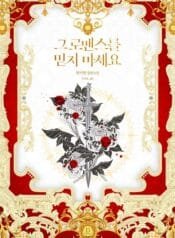Chapter 5 – The Investigation Goes Awry
Cyril Frey had always seemed like a classical figure born to fit perfectly into the Royal Knights. Though he was the sole heir of the Frey Viscountcy, his father, Winoc Frey, the deputy treasurer, was still a vigorous 47-year-old man who seemed to have more days ahead of him than behind. While the Viscount regretted that Cyril showed little interest in finance and accounting, he quickly shifted his focus upon realizing his son possessed quite remarkable talents.
Young Cyril’s specialties included swordsmanship, and his hobby was training. He was also skilled in horseback riding, dancing, and various other pursuits, though there wasn’t anything he particularly loved. For this seemingly bland man, the Royal Knights were an undeniably perfect fit.
In truth, the status of the Knights had been on a slow decline since the last rebellion war. After all, knights were glorified fighters, and what use were fighters without battles? When the Roigar Royal Family conquered half the continent and separated lords from knights, the eventual downfall or transformation of the Knights was inevitable. While they quickly swore loyalty to the King and vowed to safeguard the honor and peace of the royal family, the emergence of the Royal Investigation Bureau (essentially the city watch) soon overshadowed them. Left with no choice, the Knights sought to maintain their reputation through their unique antiquated dignity.
For investigators, it was a profession; for knights, it was a status. That was the essence of their dignity. In an era without wars, the Royal Knights had become living relics. Recently, under the leadership of their commander, Marcelan of the Roigar Royal Family, they were making efforts to adapt. The young Marcelan emphasized duty and justice over honor and peace, willingly taking on new responsibilities and even venturing beyond the royal palace to address disturbances.
Though his approach—prioritizing duty over honor—was a confusing mix of traditionalism and radicalism, it resonated well with the Kingdom’s citizens. As a result, Marcelan managed to gather a group of capable individuals under his command, including Cyril Frey, known as the “Capital’s Finest Man.” Marcelan’s overflowing enthusiasm occasionally exasperated the King, but the Knights were gradually finding their place within the Kingdom’s sprawling and loosely organized security system.
Then came the Summer Festival Ball. The case brought forward by Count Emerich, the administrative head of the Royal Knights, was not just an opportunity to establish their position—it was a golden chance to secure a prominent place within the palace.
“Rebellion.”
“Pardon?”
It was rare for Cyril Frey to ask twice. But even Commander Marcelan would have asked three times in this instance. Cyril, who had been lounging in a chair in the duty room in casual attire, quickly straightened himself. Though his posture demanded an explanation, the Count didn’t repeat himself.
“I heard you were planning to attend the ball today. I’m not sure why you stopped by the Knights’ headquarters, but it’s fortunate. Since you’re going anyway, why don’t you take care of some work while you’re at it?”
“I had my reasons for reconsidering the ball… but more importantly, could you explain? Did you just say rebellion?”
Count Emerich produced a suspiciously written note.
West Garden. Planned rendezvous. Keep surveillance with a small team.
While the term “West Garden” typically referred to the palace garden, the note lacked any substantial evidence of rebellion. Cyril was momentarily at a loss for words, but the Count remained firm. His task was to stake out the West Garden, identify any suspicious activity during the rendezvous, and report back.
“Just gather information if you can. If you can exchange words, even better. If you can capture them, that’s best.”
“That sounds fine, but… there will be at least 500 suspicious people at the palace tonight. Could you provide more details?”
The Count, appearing flustered, claimed he knew no more. The details were with Brig, his colleague, who was absent due to being assigned guard duty at the ferry dock. The very same Brig who had drawn Cyril’s name in a rigged lottery to assign him to the docks. Cyril wondered if the usually competent and intelligent Count Emerich had perhaps suffered heatstroke.
“You’re telling me you sent someone investigating a rebellion to guard the ferry dock?”
“I wasn’t there during the lottery! Who could’ve guessed Brig would pull such a foolish stunt?”
The draw had taken place several days ago, yet the Count hadn’t bothered to check the duty roster. For someone who knew Cyril was on leave today, this was surprisingly careless. Regardless, it was too late. It wasn’t as if Cyril could now rush to the ferry dock to retrieve Brig, who was likely already being feasted upon by mosquitoes. Nor could he send the scholarly Count Emerich in his place. Cyril Frey had never refused a duty assigned to him.
Cyril opened the office wardrobe and pulled out the oldest formal uniform of the Knights. It was an antique outfit perfect for a masquerade ball. As he quickly changed and adjusted his appearance, a royal mage entered and handed him a mask. The half-mask, with its conspicuous tortoiseshell pattern, made the Count visibly grimace.
“I believe I requested something made of fabric.”
“Well… there were two prototypes available, but despite my reservation, they were both gone when I arrived.”
Apparently, some absent-minded individuals had taken the masks for the ball, the mage sighed. Without a word, Cyril approached the Count and accepted the mask. It had small, awkwardly attached cat ears. The size was slightly smaller than ideal, the edges were so thin they were almost translucent, and it was slightly faded. It was, in short, a relic.
“It looks like an antique.”
“Exactly, Sir Cyril.”
The mage explained that the mask, discovered in storage, was at least fifty years old. He held it up to Cyril’s face, insisting it had to be tied by the wearer’s own hands. Cyril took the strings and tied them behind his head.
The mask was enchanted to obscure the wearer’s identity by disrupting the observer’s perception. It could only be removed by the wearer’s own hands, making it perfect for undercover investigations. The mage proudly elaborated on its features.
“Even though the magic conceals your identity, the mask’s design is quite eye-catching. That’s why we created two prototypes based on its enchantments—simple, pocket-sized fabric versions.”
“And those are the ones that went missing?”
“If you hear rumors about masked troublemakers at the ball, please pretend you don’t know anything…”
The mage was convinced that the culprits were young mages eager to enjoy the ball. Cyril, however, thought only about how well the antique mask matched his antique uniform.
Ah, the dark blue evening suit he had left at home crossed his mind for a moment. He thought to himself, “I’ll never get to wear that,” and let out a small, bitter laugh. Placing the mask in his pocket, Cyril left the Knights’ headquarters, entirely unaware that he would soon encounter the thieves who had stolen the prototypes.
Thus, Cyril Frey infiltrated the palace masquerade ball looking like a shabby prince from a century ago. Compared to the Royal Investigation Bureau, which had launched an undercover investigation at the same time and place, the Knights’ preparation was practically nonexistent. While the Bureau wasn’t particularly meticulous, at least they knew what they were doing. The Knights, on the other hand, didn’t even know what they were looking for. One might question whether this could even be called an investigation. If King Brendan, the master of the palace, had known, he might have accused the Knights of treason instead.
As a result of this thoughtless intrusion into the palace, Sir Cyril ended up being flamboyantly humiliated by a woman whose name and face he didn’t even know. Stripped of even the clue he had desperately secured, all he could learn was the existence of a “transaction”—whether political or economic, he couldn’t tell.
And there was also the involvement of an influential noblewoman—a high-ranking figure close to Princess Cléran—who had stolen items from the Mage Order, handed them over, and orchestrated dangerous tasks.
***
“Where’s Sir Brig?”
“On leave.”
Ten days after the summer festival ended, the entire Knights’ Order had returned to their posts. Unlike Sir Brig, who was on a genuine vacation, Sir Maurice Argulin, who had been assigned ferry dock duty due to an unlucky draw, appeared pale and haggard. Cyril, who had also been assigned to the docks last year, was about to offer some customary words of comfort when another voice abruptly cut in.
“One looks half-dead… and the other might actually be dead, huh?”
“Don’t say that, Lady Sophie. If I die now, I won’t have to report to the Knights anymore.”
“Well, since you’re already here, work today and die tomorrow, Lord Argulin.”
Sophie Tyrell was about the same height as Danielle, meaning her eyes reached Cyril’s chin and she was almost the same height as Maurice. She patted Cyril’s broad shoulders lightly as she passed, but smacked Maurice’s back hard enough to hurt, grinning as she did so.
“I heard it from the director. None of you ever came back after that, did you?”
“It wasn’t a situation where we could return…”
Maurice muttered weakly, while Cyril remained silent. In his tattered state, he couldn’t even bring himself to enter the Knights’ headquarters, let alone his own home. The shame of sneaking a damp cloak off someone else’s clothesline and leaving behind a silver coin was worse than the humiliation of solving his problem alone.
He had never felt such a rapid descent into disgrace within a few hours. Cyril crawled through a dog hole, climbed through a window, and returned to his room, draped in a damp cloak. After discarding the antique uniform and mask, he finally noticed the dark blue evening suit he had recently acquired. His servant had prepared it “just in case.”
Sigh… The memory of draping it over his shoulders for a brief moment was a secret he never wanted to share. Cyril spent the final day of the festival holed up at home, tending to his injuries.
But why the ferry docks? While the Roigar ferry docks were indeed historic royal landmarks, they weren’t particularly busy. Knights disliked the docks simply because of the overwhelming number of mosquitoes in the summer. When asked what had happened, Maurice avoided answering directly. Sophie, who was sitting on a nearby chair, craned her neck and interrupted again.
“Why? Did a ghost from the marshes appear? Like a rebel who drowned there?”
“Even nonsense has its limits, Lady Tyrell…”






